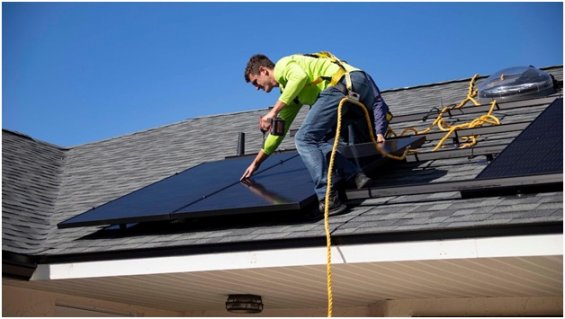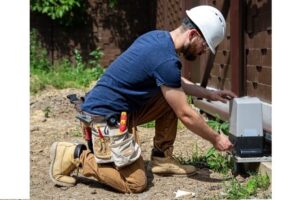Roof repair is a crucial aspect of home maintenance that homeowners must approach with diligence and informed decision-making. The roof, being a fundamental component of a home’s structure, not only contributes to the aesthetic appeal of the property but also plays a vital role in ensuring safety and comfort. However, roof repair is not a straightforward task and involves several considerations to ensure that it is done effectively and efficiently. From understanding the costs involved to assessing the extent of damage and selecting the right materials, each factor plays a significant role in the repair process. This guide aims to delve into the key factors homeowners must consider before embarking on roof repair, ensuring they make well-informed decisions that safeguard their home and financial investment.

Table of Contents
1. Identifying the Extent of Damage
Accurately assessing the extent of damage to the roof is critical in determining the scope of the repair work needed. Superficial damage may require simple fixes, such as replacing shingles or sealing leaks. However, more severe issues like structural damage or widespread deterioration may necessitate a more comprehensive approach, including potentially replacing the entire roof.
It is advisable to have a professional roofing inspector or contractor conduct a thorough evaluation of the roof. This assessment can provide a detailed understanding of the condition of the roof and help in making an informed decision on whether to repair or replace it.
2. Understanding Roof Repair Costs
One of the main considerations for homeowners is the roof repair cost. It’s essential to have a clear understanding of the financial implications before beginning any repair work. The cost of roof repair can vary mostly based on several factors, including the type of materials used, the extent of roof damage, labor costs, and geographical location. For instance, repairing a few broken shingles will cost significantly less than overhauling a roof that has sustained extensive damage.
Homeowners should start by getting multiple estimates from reputable contractors to gain a realistic idea of the expected expenses. It’s also important to factor in additional costs such as permits, disposal of old materials, and potential unexpected issues that might arise during the repair process. Planning financially for these expenses ensures that homeowners can manage their budget effectively without compromising on the quality of the repair work.
3. Choosing the Right Materials
The choice of materials for roof repair is another crucial factor that homeowners must consider. The selection should be based on factors such as durability, compatibility with the existing roof, aesthetic preferences, and local climate conditions. For instance, asphalt shingles are popular due to their affordability and ease of installation, while metal roofing is valued for its longevity and resistance to extreme weather conditions.
Homeowners should research various roofing materials to understand their pros and cons. It’s also important to consider the long-term implications of the chosen material on maintenance, energy efficiency, and overall home value. Consulting with roofing professionals can provide valuable insights into the best materials suited for the specific needs and conditions of the property. This informed choice ensures that the repair work enhances the roof’s functionality and contributes to the longevity and safety of the home.
4. Hiring Qualified Roofing Contractors
Selecting the right contractor is paramount in ensuring quality roof repairs. Homeowners should seek out experienced and licensed professionals who have a proven track record. The process of hiring a contractor should involve thorough research. Start by checking online reviews, asking for recommendations from friends or neighbors, and verifying the contractor’s credentials, including their license and insurance.
It’s advisable to request detailed quotes from several contractors to compare prices and services. A reliable contractor should provide a comprehensive estimate that includes the cost of materials, labor, and any additional expenses like disposing of old materials or rental equipment. Don’t hesitate to ask potential contractors about their experience with similar repair projects, their approach to unforeseen problems, and the warranty they offer on their work. Choosing a qualified contractor ensures that the roof repair is conducted efficiently, adhering to high standards of quality and safety.
5. Considering the Weather and Timing
Timing and weather conditions play a critical role in planning and executing roof repairs. Ideally, roof work should be carried out in mild weather conditions to avoid delays or complications caused by rain, strong winds, or extreme temperatures. In many regions, late spring to early autumn offers the most favorable weather for roofing projects.
Homeowners should plan their roof repairs well in advance, considering the local weather patterns. Scheduling repairs during a period of predictable weather minimizes the risk of weather-related interruptions, which can prolong the project and potentially lead to increased costs. Moreover, completing roof repairs before the onset of harsh weather, such as winter storms or heavy rains, can prevent further damage and ensure that the home is well-protected against the elements.
6. Compliance with Local Building Codes
Adherence to local building codes and regulations is a crucial aspect of roof repair. These codes are in place to ensure that construction work, including roofing, meets safety standards and building regulations. Before starting any repair work, homeowners should familiarize themselves with the relevant local codes and obtain any necessary permits.
This compliance is not only a legal requirement but also essential for the safety and integrity of the home. Failure to adhere to building codes can result in penalties legal issues, and potentially compromise the quality of the repair work. Homeowners should ensure that their roofing contractor is aware of and complies with all local building codes. In some cases, inspections by local authorities may be required upon completion of the repair work to certify that the project meets all regulatory standards.
Conclusion
Roof repair is a significant undertaking that requires careful consideration of various factors. From understanding the costs involved to choosing the right materials and hiring qualified contractors, each step plays a crucial role in the success of the project. Additionally, considering the timing of the repairs and ensuring compliance with local building codes are essential for a smooth and effective repair process. By paying attention to these critical factors, homeowners can ensure that their roof repairs are carried out efficiently, safely, and in a manner that ensures the longevity and integrity of their homes. Proper planning and execution of roof repairs not only protect the property from weather-related damage but also contribute to maintaining and enhancing the overall value of the home.




